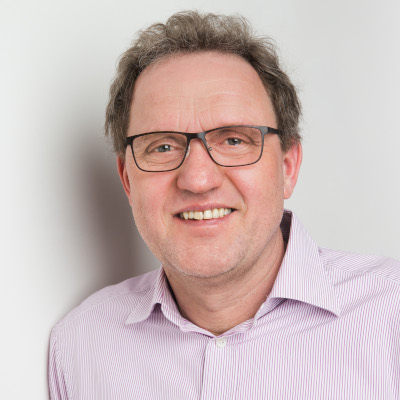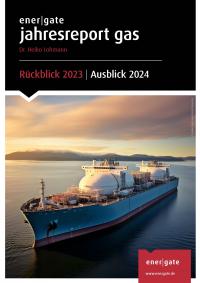2023 wird häufig als Jahr nach der Gaskrise beschrieben. Der Frage, ob dies wirklich so ist, geht Heiko Lohmann im energate Jahresreport Gas 2023 nach. Aber dies ist natürlich nur ein Thema. Im Jahresreport geht es unter anderem auch um die vertiefte Diskussion über die Zukunft der Gasnetze, die 2023 begonnen hat. Heiko Lohmann klärt zudem, warum nicht 2023, aber 2024 das Jahr wird, in dem der Markthochlauf für Wasserstoff …
Stay up to date with the free Gasmarkt-Newsletter! We will inform you about new issues by e-mail and give you an insight into the contents.

energate Gasmarkt Issue 10|2024
Topic of the month: Scenario framework for the Gas and Hydrogen Network Development Plan 2025
 Dr. Heiko Lohmann
Dr. Heiko Lohmann
Throughout this issue, you will find snippets from the Beyondgas hydrogen conference in Oldenburg. The older readers among you will remember the Oldenburger Gastage, which were held in December for several years until 2010. Management consultant Peter Rügge, who now also organises Beyondgas, was responsible for the event. However, it is no longer held in Bad Zwischenahn - like the first Gas Days - or in the Oldenburg exhibition halls, but in the castle and in a large tent next to the castle. The event is for hydrogen supporters, there are no really critical voices represented. But that's OK, because the focus is on networking and exchanging experiences.
A statement by Sopna Sury, responsible for hydrogen on the board of RWE Generation, sums up the mood of the whole conference: "There has been disillusionment among all players about hydrogen. But this realism is important, because today we can see what it means to produce hydrogen. RWE will be doing this as part of the IPCEI GetH2 project. Basically, there was broad agreement at the conference that more funding instruments are needed to get the market off the ground. Frankly, I am concerned that hydrogen in Germany will have to be permanently subsidised in many areas in order to be competitive. Sigmar Gabriel, former politician of the Social Democratic Party and chairman of the supervisory board of ThyssenKrupp Steel until the end of August, said in an interview with the weekly newspaper DIE ZEIT that no steel company in Germany could predict with certainty that green steel products would be profitable even with massive state subsidies. A certain amount of disillusionment on this issue is perhaps helpful.
Hydrogen is a dominant theme in this issue. One alternative to hydrogen (at least green hydrogen) is CCS. A few weeks ago, I spoke to Hans Coenen, a member of Gasunie's Executive Board, and was fascinated by how pragmatic the Dutch are about it. You can read the interview in this issue. The interview is followed by a reference to a study by Steffen Bukold of EnergyComment. After analysing studies and reports on previous projects, Mr Bukold takes a highly critical view of the issue. In my opinion, transparency and a very open approach to costs and possible risks are important when it comes to CCS.
Topic of the month: Scenario framework for the Gas and Hydrogen Network Development Plan 2025
The scenario framework for Gas and Hydrogen Network Development Plan (NDP) basically contains many firsts: • The plan was prepared for the first time by the Coordination Office for Network Development Planning for Gas and Hydrogen (KO NEP).
• For the first time, the TSOs are not conducting their own consultation. On 2 September, BNetzA began a simultaneous consultation on the scenario frameworks for electricity and gas. This was the first time this had happened.
• Of course, the inclusion of hydrogen is also a first.
• The planning period has been extended. The law requires that the scenarios must take into account the climate and energy policy goals of the federal government for the next ten to 15 years and up to 2045. In concrete terms, this means - following a BNetzA decision - the first planning period until 2037 and the second planning period until 2045.
• Taking climate targets into account means that, for the first time, the TSOs must explicitly apply a top-down approach for the scenarios. The starting point is the political targets and not the demand forecasts of the distribution system operators or the capacity requests from power plants, storage facilities or LNG terminal operators. However, these are to be taken into account "appropriately".
The legal basis for this new organisation of the scenario framework and later also the network development plan was introduced last year in the Energy Industry Act (EnWG) in Sections 15a-e. In the following, some of the firsts and their implementations are described in more detail. [...]
Jahresreport Gas
Frequently Asked Questions
1. What is the energate Gasmarkt?
The energate Gasmarkt provides specialists and executives in the gas industry with up-to-date information and background information on the German and international gas market. The medium expertly explains the most important developments in the fields of market, law, politics and business. In addition, the energate Gasmarkt offers insider information such as market rumors and personal details.
2. What is the energate Jahresreport Gas?
The energate Jahresreport Gas traces the most important market developments of the year and provides a well-founded outlook for the coming months. Gas expert and insider Dr. Heiko Lohmann analyzes relevant events in politics, law and regulation as well as on generation, infrastructure and trade. In addition, the report provides information on changes in the corporate landscape and tracks price developments in market reports. Top decision-makers from the industry use the Jahresreport Gas as a compact chronicle of the year and to assess future market developments.
3. How often are these publications released and in which formats are they available?
The energate Gasmarkt is published monthly. Subscribers will receive the energate Gasmarkt as a print and PDF version in German and English. The Jahresreport Gas is published annually (beginning of December).
4. Can I purchase individual issues of the energate Gasmarkt?
Yes, you can purchase individual isses as print or PDF version. Payment options include purchase on account, credit card or PayPal.
5. How much is a subscription of the energate Gasmarkt and how much does the Jahresreport cost?
A subscription to the energate Gasmarkt (single licence) costs 110,- Euro/month (plus VAT). An edition of the Jahresreport Gas costs regularly 390,- euro (plus VAT).
6. Are there any special conditions if several employees in a company would like to receive the Gasmarkt?
With several Gasmarkt recipients in one company, the price of the second and all other licenses is reduced significantly. We are happy to make you a fair offer for team or corporate licenses!
7. What benefits do I get by registering?
A free energate account is required to order the energate Gasmarkt or the energate Jahresreport Gas. Registered users receive an overview of the contents of the current issue of energate Gasmarkt by e-mail on the day of publication.
8. I would like to read energate Gasmarkt or energate Jahresreport Gas digitally. Where can I find my e-paper version?
As a subscriber to energate Gasmarkt or as a purchaser of energate Jahresreport Gas, you will also receive an e-paper version in addition to the print edition. You can find it at online.energate-gasmarkt.de. Please use your energate account to log in.



